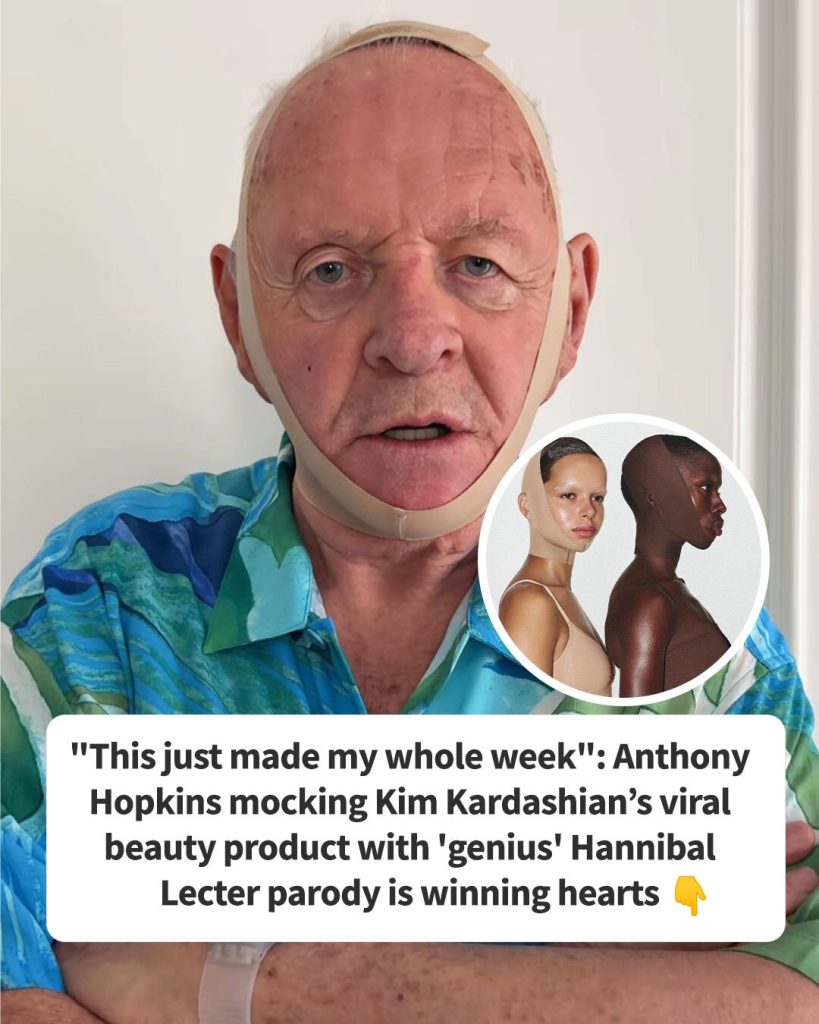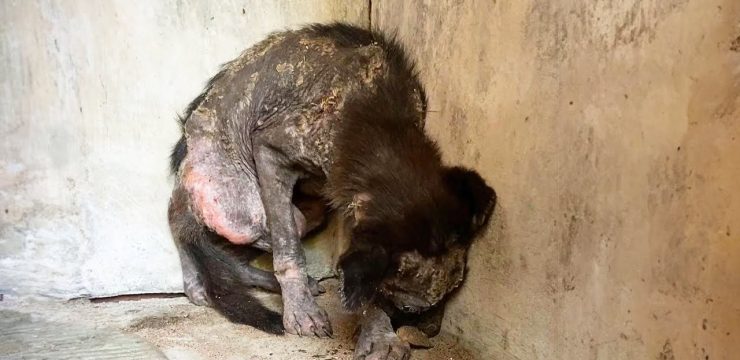Sir Anthony Hopkins has officially joined the wave of internet users mocking Kim Kardashian’s latest viral product—a $48 “sculpting mask” from her SKIMS line. In a cheeky Instagram post, the legendary actor slipped on the now-infamous face wrap and immediately transformed into one of his most iconic characters: Hannibal Lecter.
“Hello Kim, I’m already feeling 10 years younger. Goodbye,” Hopkins said in his chilling Lecter voice, followed by a slurping sound reminiscent of The Silence of the Lambs. He ended with a darkly humorous invitation: “Thank you, Kim. Don’t be afraid to come over for dinner.”

The internet was already buzzing with comparisons between the SKIMS face wrap and Hannibal Lecter’s muzzle, but Hopkins taking the meme into his own hands sent it viral. Dressed in a vibrant shirt and beaming into the camera, the Oscar-winner played right into the absurdity of it all.
The SKIMS Seamless Sculpt Face Wrap, released earlier this week in two colors—“clay” and “cocoa”—is marketed as a game-changing beauty accessory. According to the brand, it’s designed to lift and tighten the jawline and neck using “collagen yarns” woven into a compressive fabric with adjustable Velcro straps. The goal? Targeted facial sculpting as part of a relaxing nightly routine.
Kim Kardashian herself appeared in promotional images, donning platinum blonde hair and a sleek black outfit, touting the wrap as a must-have for anyone looking to elevate their skincare routine. But not everyone is buying into the hype.
Medical professionals and skincare experts have spoken out, suggesting that the wrap is more gimmick than innovation. At its core, it’s essentially a soft compression garment—similar to those used post-surgery to reduce swelling or assist in lymphatic drainage—but with no proven long-term benefits when used casually at home.
Dr. Anil Shah, a facial plastic surgeon practicing in New York and Chicago, weighed in during an interview with the New York Post. “It’s really not going to make any long-term structural changes of any kind,” he said, adding that the face wrap lacks the ability to move fat or tighten skin and muscle in the way more invasive procedures can. “Don’t waste your money on this one.”
He acknowledged that shapewear can enhance the way someone looks in clothing, but emphasized that sleeping in a face wrap won’t deliver the same magic. “There’s a reason we do surgery for these things,” he added.
Meanwhile, other dermatologists and experts echoed Shah’s sentiment, questioning SKIMS’ claims about collagen yarns boosting natural collagen production. They pointed out that no independent studies currently support such results.
Despite the criticism, the product sold out on the SKIMS website within 24 hours. This has only added fuel to the fire for critics who argue that Kardashian’s influence often overrides logic or evidence. While social media users mocked the design—some calling it a “medieval torture device” or a “hostage hood”—the sales figures suggest that the ridicule may not hurt the bottom line.
One particularly frustrated user commented, “There’s a 16-year-old girl out there thinking she needs to buy this cr*p.” Another added, “SKIMS—making women feel bad about themselves since 2018.” The backlash taps into a growing concern about the way beauty products are marketed—especially to younger and more impressionable audiences.
Kim has remained silent on the criticism, perhaps letting the sold-out status speak for itself. But the conversation has sparked broader questions about the pressure women face in today’s beauty-obsessed culture. Caroline Hirons, a respected skincare expert, dismissed the product altogether, calling it an “April Fools joke.”
Plastic surgeon Akash Chandawarkar took a slightly different angle, suggesting the wrap might be appropriate in very specific contexts. “It seems perfect for after a facelift, necklift, or submental liposuction,” he said, implying that its best use is as a post-procedure aid—not as a miracle beauty tool for the average consumer.
As the meme continues to spread across platforms like TikTok, beauty influencers have stepped in with deeper concerns. Jamie Janejira, a content creator known for her candid takes on plastic surgery and beauty culture, voiced what many were thinking.
“What if your face doesn’t need to be snatched and lifted?” she asked in a viral video. “What if there are infinite numbers of types of beauty? What makes us beautiful is that we don’t all look the same.”
In an era where image-editing filters, injectables, and now even “sculpting masks” are being pushed as necessities, Janejira’s message struck a nerve. Many followers praised her for reframing the conversation around authenticity and self-worth.
Still, Kardashian remains one of the most influential voices in the beauty and fashion world. Her ability to turn even the most ridiculed product into a sellout success is a testament to her branding power. But it also raises concerns about how marketing can sometimes blur the line between empowerment and exploitation.
Hopkins’ viral parody may have been playful, but it reflected a broader skepticism about the endless pursuit of perfection. And while the SKIMS face wrap might provide temporary comfort or a placebo boost in confidence, it’s unlikely to deliver on its loftier promises.
Whether people are laughing at the absurdity or buying into the dream, one thing’s clear: when it comes to beauty trends, reality and fantasy are often separated by a very thin—sometimes Velcro-fastened—line.





